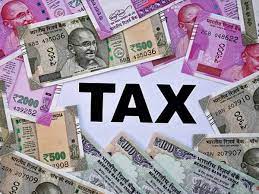TAX SYSTEM IN INDIA: COULD REFORM SPUR GROWTH
AUTHOR – VISHNU PRIYA NARAHARISETTI, STUDENT AT SYMBIOSIS LAW SCHOOL, NOIDA
SYMBIOSIS INTERNATIONAL (DEEMED UNIVERSITY), PUNE
Best Citation – VISHNU PRIYA NARAHARISETTI, TAX SYSTEM IN INDIA: COULD REFORM SPUR GROWTH, ILE TAXATION LAW AND LEGAL STUDIES (ILE TLLS), 1 (1) of 2023, Pg. 15-18, APIS – 3920 – 0024 | ISBN – 978-81-961120-5-9.
Abstract
In this paper, we would be discussing how tax reforms can be a powerful tool for stimulating economic growth by enhancing the efficiency and fairness of the tax system, promoting investment and entrepreneurship, and reallocating resources for productive purposes. The objectives and design of tax reforms may vary across countries but commonly involve reducing taxes, lowering tax rates, broadening the tax base, and eliminating loopholes and exemptions. Nevertheless, caution is necessary as tax reforms can lead to unintended consequences such as reduced government revenue or unequal distribution of the tax burden. Hence, careful planning and implementation are crucial to ensure that tax reforms align with the broader objectives of economic and social development. By spurring growth, tax reforms can drive an increase in overall production, elevate living standards, create employment opportunities, and foster business expansion. In many developing and transitional economies, tax reforms are driven by the need to adapt the tax system to meet the demands of international competition.
Keywords – Direct tax code, revenue, business, tax system, tax reforms.
